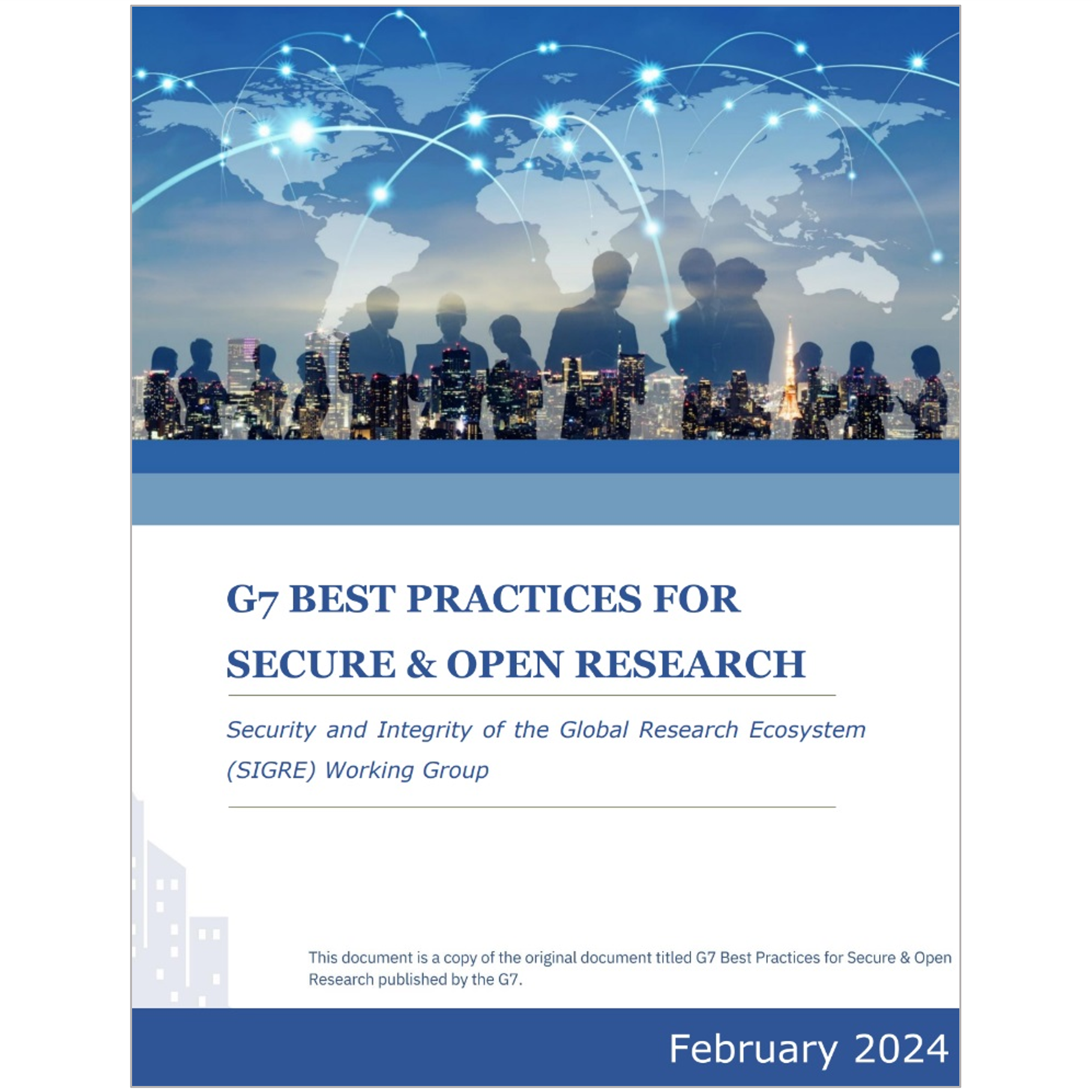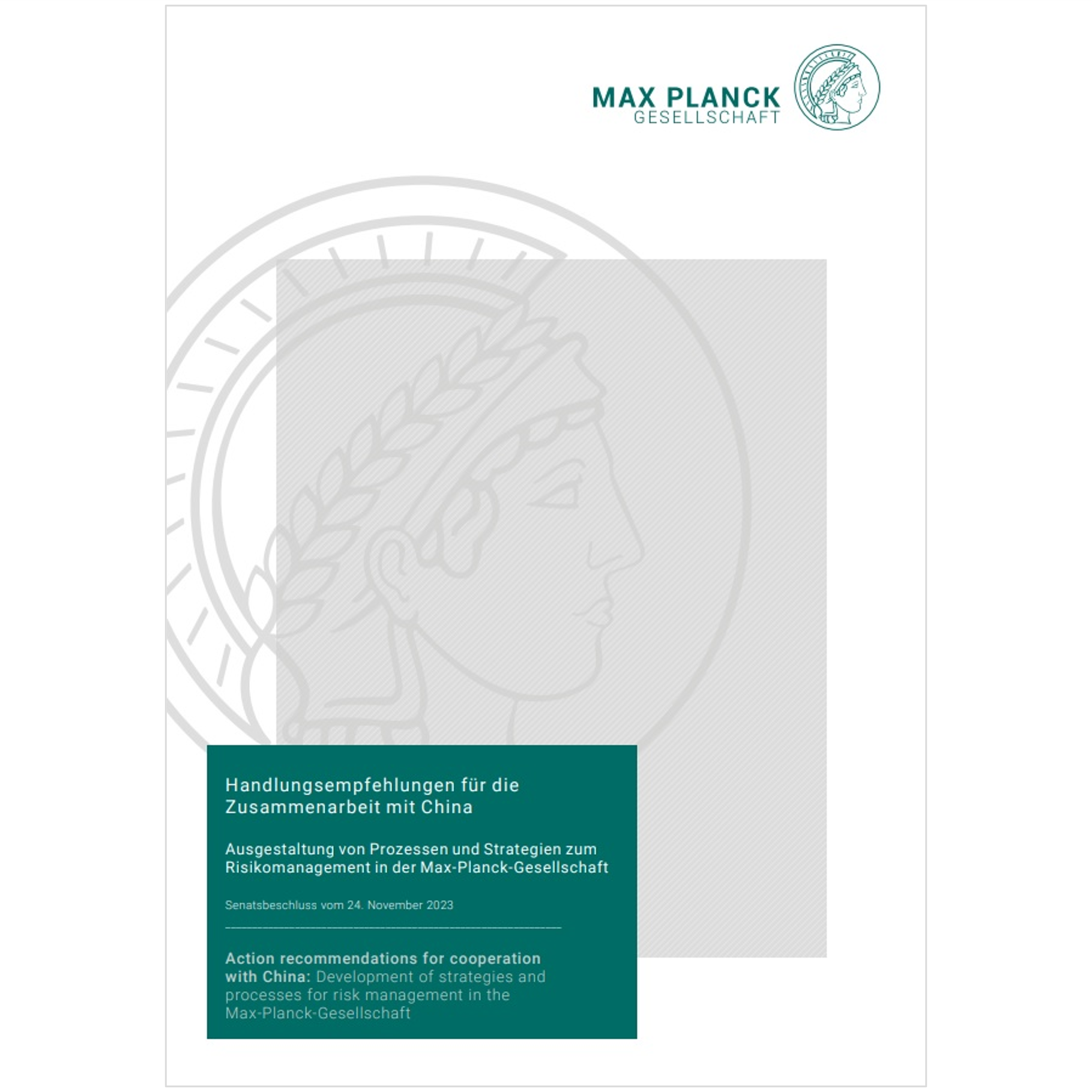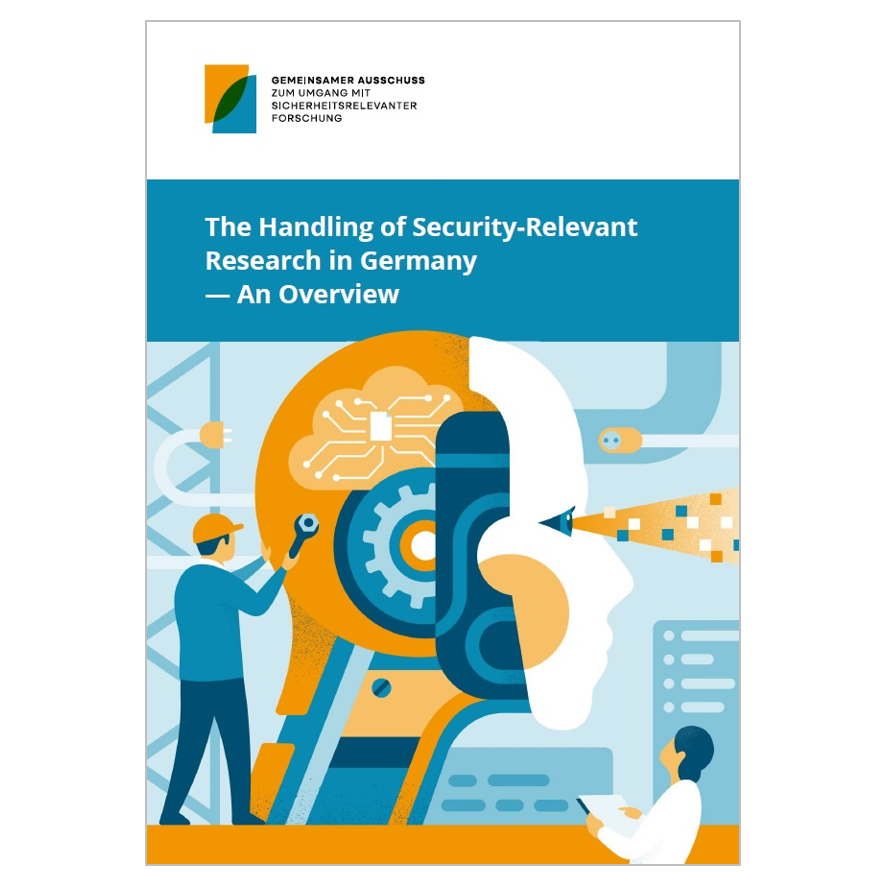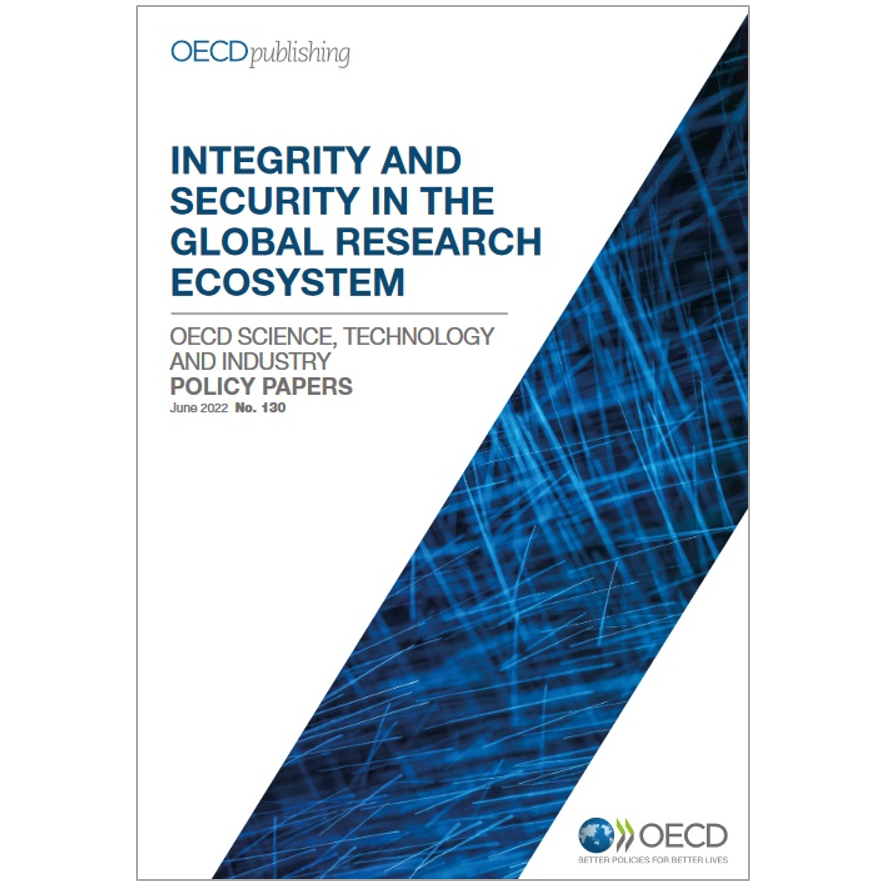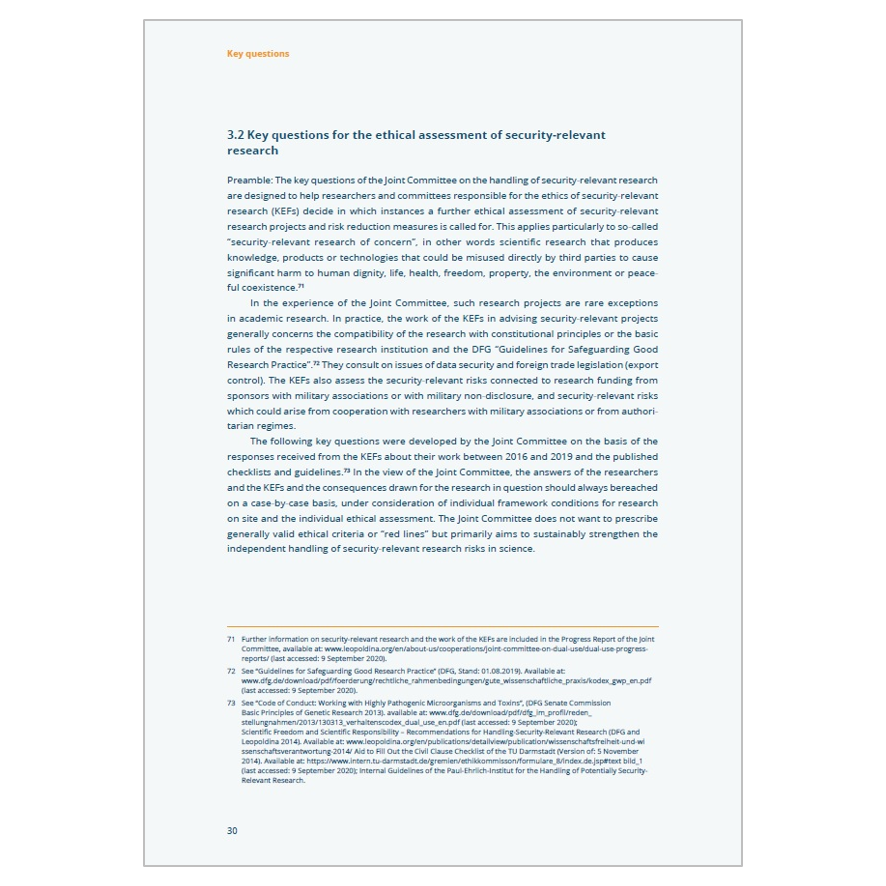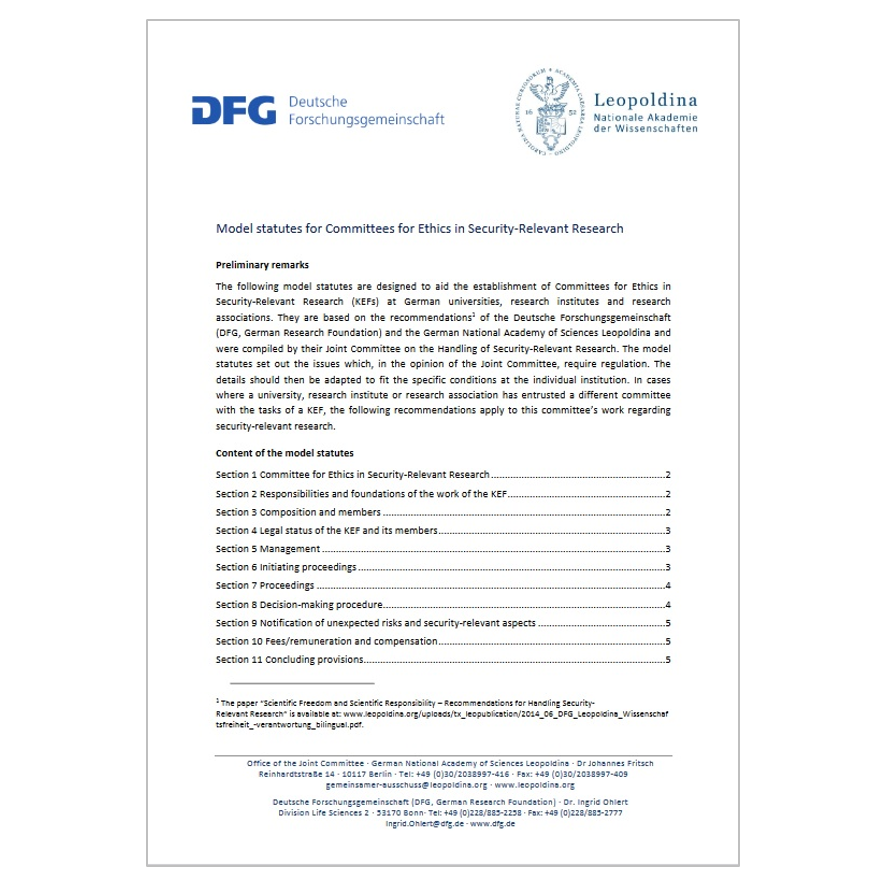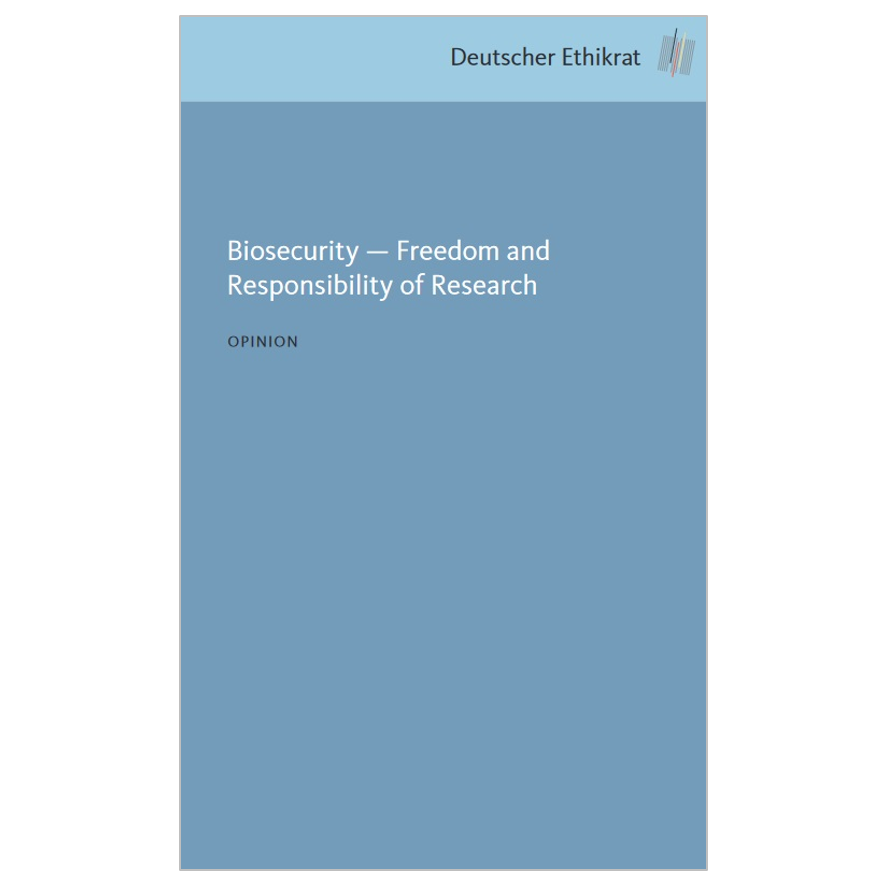Tags

-
Startseite
- /
- Assessment Procedures
Publikationen
-
Applying Ethics in the Handling of Dual Use Research: The Case of Germany
Mehr lesen: Applying Ethics in the Handling of Dual Use Research: The Case of GermanyWith regard to the handling of dual use research, the dominant approach in Germany aimed at mitigating dual use risks emphasizes the freedom of research and the strengthening of academic self-regulation. This article presents this approach as one example for a framework for handling security-relevant research, underlines the need for awareness-raising about risks of security-relevant…
-
Risks in international research cooperation
Mehr lesen: Risks in international research cooperationGuidelines and position statements mention risks arising from international research cooperation. In this analysis, we attempt to decipher the complex challenges in global research partnerships and the intricate web of potential risks in international research. Tables in the appendix of the analysis provide a concrete working aid. Specific risk types, risk indicators and possible measures…
-
Report on Research, Innovation and Technological Performance in Germany
Mehr lesen: Report on Research, Innovation and Technological Performance in GermanyIn view of increasing global threats, the Commission of Experts recommends reevaluating the options for managing military R&D. Studies show that military R&D had positive effects on civilian R&D via spillovers and thereby also positively impacted productivity and employment in the civilian sector in addition to increasing performance in the military sector. To achieve this…
-
A Framework for Tomorrow’s Pathogen Research
Mehr lesen: A Framework for Tomorrow’s Pathogen ResearchThe Bulletin of the Atomic Scientists began more than 75 years ago as an emergency action by scientists who saw an immediate need for a public reckoning in the aftermath of the atomic bombings of Hiroshima and Nagasaki. The scale of the loss of life and the obliteration of these cities in the late summer…
-
G7 Best Practices for Secure and Open Research
Mehr lesen: G7 Best Practices for Secure and Open ResearchOpen and collaborative research allows us to respond to some of the world’s most challenging issues. Research integrity acts as the base from which researchers are able to operate in our global research environment. To support research integrity, the above best practices are meant to help research communities establish and improve processes and efforts to…
-
National security guidelines for research partnerships
Mehr lesen: National security guidelines for research partnershipsThe National Security Guidelines for Research Partnerships integrates national security considerations into the development, evaluation, and funding of research partnerships. The Guidelines better position researchers, research organizations and Government funders to undertake consistent, risk-targeted due diligence of potential risks to research security.
-
Action recommendations for cooperation with China
Mehr lesen: Action recommendations for cooperation with ChinaFor almost 50 years, the Max-Planck-Gesellschaft (MPG) has maintained scientific exchange with the People’s Republic of China (hereinafter referred to as China). With the establishment of official relations withthe Chinese Academy of Sciences (CAS) in 1974, the MPG assumed a pioneering role in the German sciencesystem, has since maintained successful cooperation with many Chinese researchers…
-
The Convergence of Artificial Intelligence and the Life Sciences: Safeguarding Technology, Rethinking Governance, and Preventing Catastrophe
Mehr lesen: The Convergence of Artificial Intelligence and the Life Sciences: Safeguarding Technology, Rethinking Governance, and Preventing CatastropheRapid scientific and technological advances are fueling a 21st-century biotechnology revolution. Accelerating developments in the life sciences and in technologies such as artificial intelligence (AI), automation, and robotics are enhancing scientists’ abilities to engineer living systems for a broad range of purposes. These groundbreaking advances are critical to building a more productive, sustainable, and healthy…
-
Recommendations from the DFG: Dealing with Risks in International Research Cooperation
Mehr lesen: Recommendations from the DFG: Dealing with Risks in International Research CooperationThe potential risks involved in international research cooperation projects funded by the Deutsche Forschungsgemeinschaft (DFG, German Research Foundation) shall henceforth be subjected to a more thorough and systematic reflection. To this end, the largest research funding organisation and central self-governing organisation for science and the humanities in Germany has put forward recommendations that have recently…
-
Stricter US guidelines for ‘gain-of-function’ research are on the way — maybe
Mehr lesen: Stricter US guidelines for ‘gain-of-function’ research are on the way — maybeA biosecurity panel met, expecting to approve recommendations, but myriad concerns complicated the proceedings.
-
Should Democracies Draw Redlines around Research Collaboration with China? A Case Study of Germany.
Mehr lesen: Should Democracies Draw Redlines around Research Collaboration with China? A Case Study of Germany.Global research collaboration in scientific and engineering fields has been critical to advancing the frontiers of knowledge, promoting economic prosper ity, and solving global challenges. The global research enterprise is, by design, largely open and unrestricted. However, new risks and challenges threaten this open collaboration, particularly regarding authoritarian nations like the People’s Republic of China…
-
How National Governments and Research Institutions Safeguard Knowlegde Development in Science and Technology
Mehr lesen: How National Governments and Research Institutions Safeguard Knowlegde Development in Science and TechnologyThe study provides an overview and comparative analysis of nine national approaches to strengthening knowledge security and the forces that drive them. The national approaches are those of Australia, Czech Republic, Finland, France, Germany, Japan, Taiwan, the United Kingdom and the United States. They all have developed different approaches, depending on the national political context,…
-
Information Brochure “The Handling of Security-Relevant Research in Germany – An Overview”
Mehr lesen: Information Brochure “The Handling of Security-Relevant Research in Germany – An Overview”The information brochure is dedicated to the most important questions about dealing with security-related research in Germany. It gives an initial insight into relevant subject areas, the importance and structure of the committes for ethics in security-related research and the legal framework and funding. It describes case studies and illustrates how ethical aspects of security-related research can be anchored…
-
Annotated collection of guidance for secure and successful international R&I cooperation
Mehr lesen: Annotated collection of guidance for secure and successful international R&I cooperationAn annotated collection of guidelines, checklists and comparable documents is intended as a reference to help stakeholders in research and innovation to safeguard international cooperation.
-
G7 Common Values and Principles on Research Security and Research Integrity
Mehr lesen: G7 Common Values and Principles on Research Security and Research IntegrityThe G7 members envision the continuation of a collaborative research system where the importance of all talent – domestic and international – is acknowledged. Openness and security are not contradictory but complementary and mutually reinforcing. To sustain this vision, we have developed and are embracing these principles of research security, which are common to the…
-
Integrity and security in the global research ecosystem
Mehr lesen: Integrity and security in the global research ecosystemResponsibilities for research integrity and security are distributed across multiple actors in the international research ecosystem. These include, national governments, research funding agencies, research institutions, universities, academic associations, and intergovernmental organisations. This report describes policy initiatives and actions from these different actors to safeguard national and economic security whilst protecting freedom of enquiry, promoting international…
-
National knowledge security guidelines—Secure international collaboration
Mehr lesen: National knowledge security guidelines—Secure international collaborationWorld-class higher education and science cannot exist without internationalcooperation and scientific talent from all over the world. The leading positionand good academic reputation of Dutch knowledge institutions are related tothe academic freedom that is guaranteed in the Netherlands, as well as to theopenness of our knowledge institutions towards the world. Our prosperity is duein large…
-
Checklist for Collaboration with Chinese Universities and Other Research Institutions
Mehr lesen: Checklist for Collaboration with Chinese Universities and Other Research InstitutionsThe Hague Centre for Strategic Studies (HCSS) has worked in close cooperation with the Leiden Asia Centre (LAC) on an extensive study mapping the risks and challenges of academic and research collaboration with Chinese partners. To this end, the LAC and HCSS conducted over 40 interviews with scientists and university staff in the Netherlands and…
-
Responsible internationalisation: Guidelines for reflection on international academic collaboration
Mehr lesen: Responsible internationalisation: Guidelines for reflection on international academic collaborationInternationalisation generally generates value for research and higher education. Overall, internationalisation of research aims to enhance quality and improvethe dissemination of results. Yet internationalisation needs to be pursued responsibly. Researchers, support services and HEI management need to assess the challengesand opportunities related to international collaboration. This need is particularlypertinent in cases of cooperation with partners…
-
Key questions for the ethical assessment of security-relevant research
Mehr lesen: Key questions for the ethical assessment of security-relevant researchThe key questions were compiled by the Joint Committee on the Handling of Security-Relevant Research based on the KEFs’ feedback on their work from 2016–2019, published checklists and guidelines on research risks. The Joint Committee believes that the respective responses of researchers and KEFs and the consequences derived from them for the work in question…
-
Risky Business – Rethinking Research Cooperation and Exchange with Non-Democracies
Mehr lesen: Risky Business – Rethinking Research Cooperation and Exchange with Non-DemocraciesStrategies for Foundations, Universities, Civil Society Organizations, and Think Tanks.
-
Four ethical priorities for neurotechnologies and AI
Mehr lesen: Four ethical priorities for neurotechnologies and AIArtificial intelligence and brain–computer interfaces must respect and preserve people’s privacy, identity, agency and equality, say Rafael Yuste, Sara Goering and colleagues.
-
Model Statutes for Committees for Ethics in Security-Relevant Research
Mehr lesen: Model Statutes for Committees for Ethics in Security-Relevant ResearchThe model statutes are designed to provide assistance in establishing KEFs (Committees for Ethics in Security-Relevant Research) at German universities, research institutes and research associations.
-
Biosecurity — Freedom and Responsibility of Research: Opinion
Mehr lesen: Biosecurity — Freedom and Responsibility of Research: OpinionSome research results obtained in the life sciences can be used not only for the benefit of individuals and society as a whole, but also misused with intent to cause harm. Research such as this is referred to as Dual Use Research of Concern (DURC). To counteract such misuse proactively the German Ethics Council advocates…
-
The Menlo Report: Ethical Principles Guiding Information and Communication Technology Research
Mehr lesen: The Menlo Report: Ethical Principles Guiding Information and Communication Technology ResearchThis report proposes a framework for ethical guidelines for computer and information security research, based on the principles set forth in the 1979 Belmont Report, a seminal guide for ethical research in the biomedical and behavioral sciences. Despite its age, the Belmont Report’s insightful abstraction renders it a valuable cornerstone for other domains. We describe…



